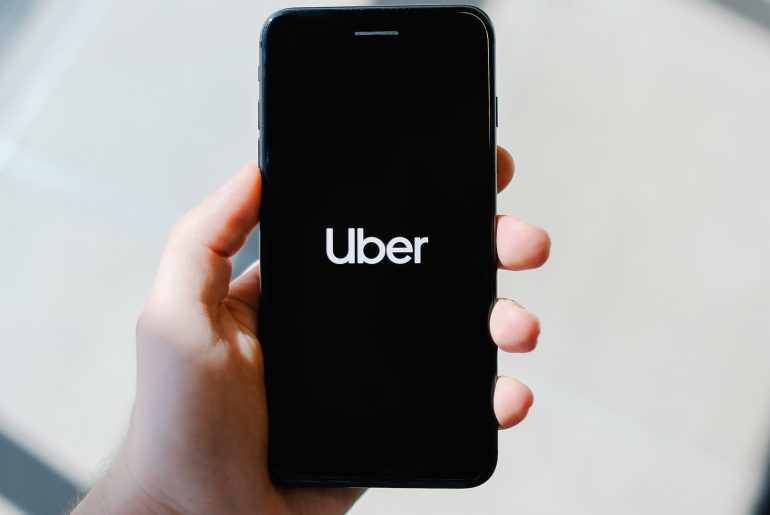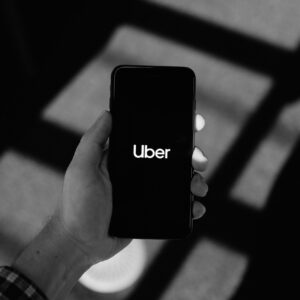This article may contain references to products or services from one or more of our advertisers or partners. We may receive compensation when you click on links to those products or services. Nonetheless, our opinions are our own.
Uber Contractor vs Employee: Are Uber Eats and Uber Driver Employees or Independent Contractors?
The onset of the COVID-19 pandemic brought about the loss of many traditional jobs; some moving to remote work with extra time available for other jobs; and the need for some to find alternative means of employment. Many turned to “gig” jobs, driving for ride-share and food delivery companies, along with many other similar services. In addition to its ride-share services, Uber has rolled out other offerings such as Uber Eats food delivery and Uber Connect package delivery. However, once tax season came around, many were unsure how to file their taxes for the new line of income. Are Uber drivers, for instance, employees of Uber or contract employees? What is the difference between Uber contractor vs employee status?
Employee Status
Uber currently employs over 3 million drivers worldwide and considers the drivers to be contract employees instead of full employees. What this means for drivers is that, while they have more freedom to work when and where they want, and for Uber competitors like Lyft while also working for Uber, it also means Uber drivers have several responsibilities. Because contract employees are not regular employees of a company, this typically disqualifies them from employee benefits like sick leave and retirement, and Uber does not withhold taxes from driver payments. This means drivers must set aside their own quarterly tax payments and, in the United States, file 1099 forms quarterly. Since, for tax purposes, contract workers are basically self-employed, they can’t get unemployment benefits either. When working as an Uber contractor vs employee for another company, as we can see, there are important differences.
Driver Responsibilities
As self-employed individuals, Uber drivers are responsible for their own income taxes, as mentioned above, but they are also responsible for the self-employment tax, which covers social security and Medicare. Otherwise, they would not be eligible for these benefits upon reaching retirement age. Drivers must provide their own tools and resources, in this case, vehicles with insurance, gas, and smartphones with the Uber app functional, but these can be claimed on taxes as well. They cannot join a union in most cases, and do not have paid time off as regular employees of another company might. Drivers will also be responsible for their own medical insurance.
Summary
Uber driver status varies in different parts of the world, but in countries such as the USA, Canada, and the UK, they are self-employed contractors accepting work from an existing company. US law states that a person is an independent contractor if they do not receive detailed instructions from an outside party on how to conduct work, and Uber walks this fine line carefully in how drivers are given instructions on how to operate. However, Uber drivers frequently cross the line from independent contractor to employee, because other laws define an independent contractor as one who does not perform work essential to the business, and Uber drivers’ work is very much essential.It is the entire business model. This short video describes the current state of affairs regarding Uber possibly miss-classifying its drivers as contractors when they should be employees, and why. It may come to pass that in the future, laws will dictate that Uber drivers are indeed employees, at which point Uber will find itself responsible for raising wages, providing benefits, and withholding taxes, though this would likely also raise the cost of rides. So far, Uber and other ride-share companies have fought such legislation, but they might not be able to for much longer, as the line between Uber contractor vs employee is erased.
FAQ
What is the California ruling that challenged Uber’s driver status?
In January 2020, a judge ruled that Uber drivers in California qualified as employees and not independent contractors, based on the AB5 law of January 2020. This law creates a test to determine if workers are contract employees or regular employees of companies operating in the state. The ruling was opposed and voted on, at which point California voters allowed ride-share companies to classify their workers as independent contractors in the subsequent years.
What are some advantages of having independent contractor status?
Workers can set their own schedule, be their own boss, have the potential to earn more than regular employees, and can avoid paying certain taxes that regular employees must pay.
What are some of the disadvantages of contract work?
Workers do not receive benefits, are responsible for their own taxes and medical insurance, have no job security, and do not qualify for workers’ compensation insurance or unemployment.

Reviewed and edited by Albert Fang.
See a typo or want to suggest an edit/revision to the content? Use the contact us form to provide feedback.
At FangWallet, we value editorial integrity and open collaboration in curating quality content for readers to enjoy. Much appreciated for the assist.
Did you like our article and find it insightful? We encourage sharing the article link with family and friends to benefit as well - better yet, sharing on social media. Thank you for the support! 🍉
Article Title: Uber Contractor vs Employee: Are Uber Eats and Uber Driver Employees or Independent Contractors?
https://fangwallet.com/2023/01/09/uber-contractor-vs-employee-are-uber-eats-and-uber-driver-employees-or-independent-contractors/The FangWallet Promise
FangWallet is an editorially independent resource - founded on breaking down challenging financial concepts for anyone to understand since 2014. While we adhere to editorial integrity, note that this post may contain references to products from our partners.
The FangWallet promise is always to have your best interest in mind and be transparent and honest about the financial picture.
Become an Insider

Subscribe to get a free daily budget planner printable to help get your money on track!
Make passive money the right way. No spam.
Editorial Disclaimer: The editorial content on this page is not provided by any of the companies mentioned. The opinions expressed here are the author's alone.
The content of this website is for informational purposes only and does not represent investment advice, or an offer or solicitation to buy or sell any security, investment, or product. Investors are encouraged to do their own due diligence, and, if necessary, consult professional advising before making any investment decisions. Investing involves a high degree of risk, and financial losses may occur including the potential loss of principal.
Source Citation References:
+ Inspo












































